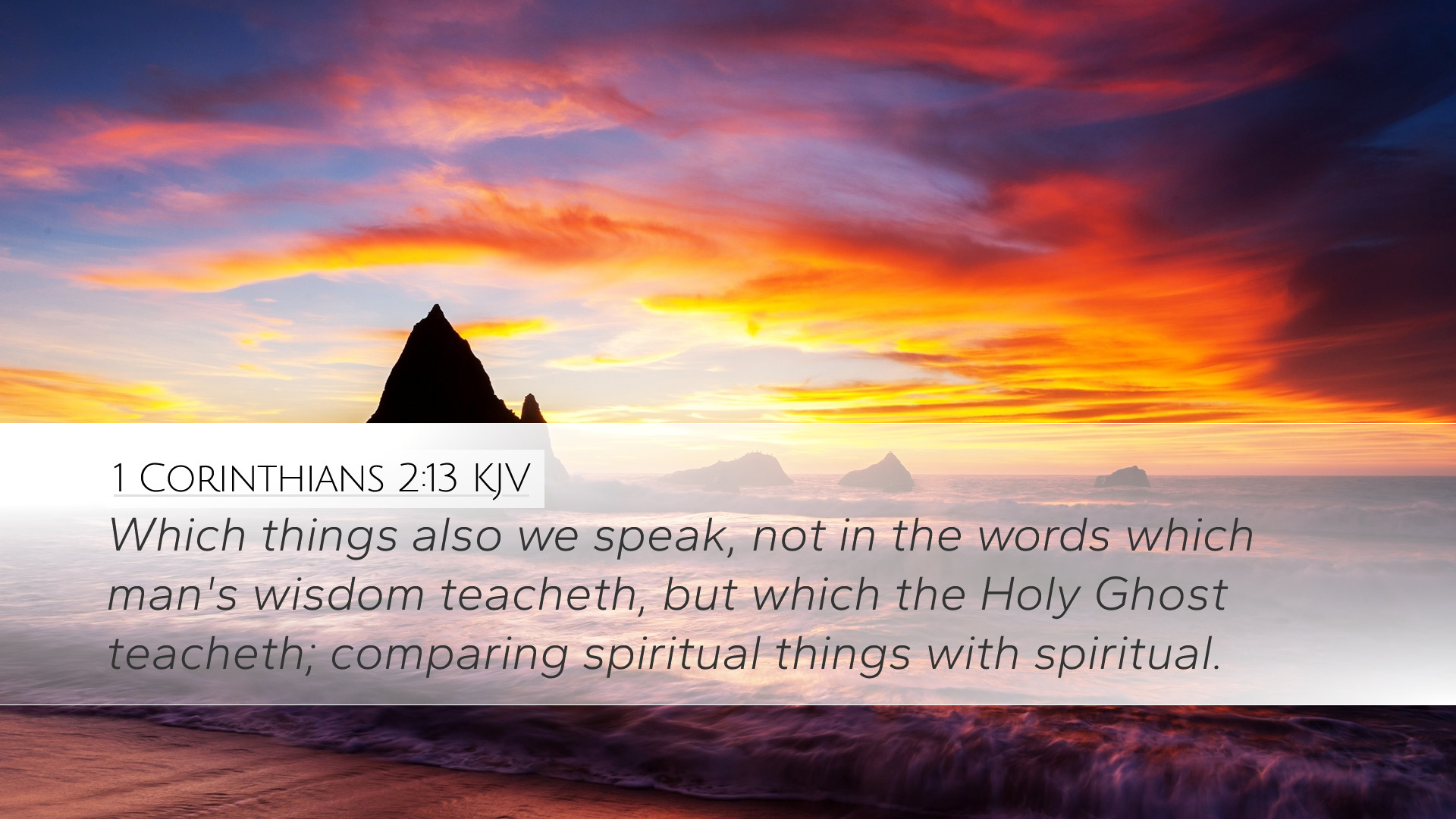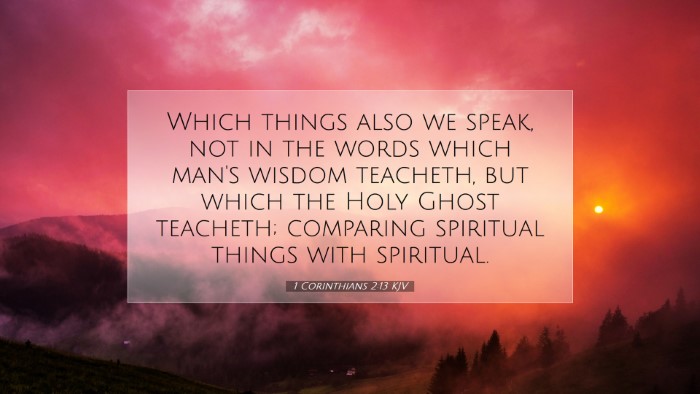1 Corinthians 2:13 (KJV): "Which things also we speak, not in the words which man's wisdom teacheth, but which the Holy Ghost teacheth; comparing spiritual things with spiritual."
This verse encapsulates a fundamental principle in Pauline theology: the distinction between divine revelation and human wisdom. It highlights the role of the Holy Spirit in imparting true knowledge to believers, a theme that resonates profoundly throughout Paul's ministry.
Interpretation and Theological Insights
Divine versus Human Wisdom
Matthew Henry emphasizes the contrast between the wisdom of God and the wisdom of man. Paul asserts that his teachings are not derived from earthly wisdom but from divine counsel.
This distinction invites reflection on contemporary church practices. Are modern teachings rooted in the revelation of the Spirit, or do they mirror secular philosophies?
Role of the Holy Spirit
Albert Barnes elaborates on the teaching of the Holy Spirit as crucial for proper understanding of spiritual truths. Paul's assertion that he speaks 'which the Holy Ghost teacheth' underscores the insistence that revelation, rather than human intellect, is the source of spiritual wisdom.
This perspective highlights the necessity for believers to rely on the Spirit for interpretation of Scripture, aligning with Jesus’ promise of the Comforter who guides into all truth (John 16:13).
Comparing Spiritual Things with Spiritual
Adam Clarke notes that this phrase indicates a dynamic interaction between different aspects of spiritual truth. Paul encourages the church to engage in a rigorous comparison of spiritual teachings, discerning true doctrine through the Spirit’s guidance.
This invites careful study of the Scriptures, urging pastors and theologians to apply sound hermeneutics, led by the Spirit, to compare scriptural truths meaningfully.
Practical Applications
For Pastors and Church Leaders
- Dependence on the Spirit: Pastoral teaching should be bathed in prayer and sensitivity to the Holy Spirit's leading, ensuring messages resonate as divinely inspired rather than mere philosophical musings.
- Teaching and Discipleship: Emphasizing the role of the Holy Spirit in teaching while educating congregations on discernment will cultivate a church adept in spiritual understanding.
For Students and Theologians
- Hermeneutical Approach: Adopting a hermeneutical approach that prioritizes reliance on the Holy Spirit can enrich theological study, enhancing clarity of scriptural meaning.
- Comparative Analysis: Engaging in comparative studies of spiritual themes remains crucial; understanding how spiritual truths interact cultivates a deeper appreciation for biblical narrative.
Conclusion
The powerful exhortation found in 1 Corinthians 2:13 beckons the church towards a greater understanding that is not influenced by the transient wisdom of the world but rather anchored in the eternal truth bestowed by the Holy Spirit. As God's people, recognizing and operating within this framework will enable believers to face challenges with divine insight, fostering a community rooted in rich, transformative spiritual wisdom.


